Saturday Commentary and Review #114
China Launches Attack on "US Hegemony", Nigeria's Failing Cashless Economy, The "National Divorce Delusion", Greek or Macedonian?, Robert Johnson and the Devil
I purposely did not write up a piece on the one-year anniversary of the Russian invasion of Ukraine because I did not want to add to the inevitable cacophony that would drown out anything that I could say. Some of you might want to check out the piece that I wrote just hours before the invasion began:
You can judge for yourself as to what I got right and what I got wrong. The piece still holds up pretty well, at least in my opinion.
Unless there are some double secret negotiations going on behind the scenes, this war is far from over. The Russians are for now content in engaging in attrition warfare in the Donbass region, with the option of moving their recently-mobilized forces in action on this front or elsewhere. The Ukrainians are preparing for their own counter-offensive that is anticipated to be launched later this spring or early summer.
The Chinese have broken with their standard practice and have issued a peace plan that really isn’t a peace plan but a call for negotiations based on some principles that are being interpreted in many different ways. The Americans have already rejected it:
Joe Biden said on Friday night that the idea of China negotiating the out come of the war was “just not rational”.
“Putin’s applauding it, so how could it be any good?” Biden told ABC News. “I’ve seen nothing in the plan that would indicate that there is something that would be beneficial to anyone other than Russia, if the Chinese plan were followed.”
…while the Germans are saying that it’s vaporware:
Although Wang Yi was in Russia only two days before the release, Moscow reported that there were no talks about the so-called "Political Settlement of the Ukraine Crisis."
In the peace initiative, the main focus was on sovereignty and territorial integrity. However, China does not specify how this issue, fundamental to both Russia and Ukraine, should be addressed.
"China pays lip service to territorial integrity, but hasn't called on Russia to stop its illegal war of conquest and withdraw its troops," Thorsten Benner, director of the Global Public Policy Institute, told DW.
Contrary to many expectations, the plan also did not call to halt arms supplies to Ukraine.
The paper highlights dialogue and negotiations as the only viable solution to the Ukraine crisis.
and
China's role as a mediator in the conflict seems dubious since it appears not an impartial actor. Over the past year, Beijing has intensified political, military, and economic ties with Moscow. In the 12-point proposal, China once again opposes "unilateral sanctions unauthorized by the UN Security Council."
Zelenskyy has repeatedly sought to make contact with Chinese President Xi Jinping since Russia invaded Ukraine in February last year. At the same time, Xi has not met or called the Ukrainian president even once despite regular contact with Putin.
"It is foolish to believe that a party that is on the side of one player, namely China on the side of Russia, could play the role of the mediator. The same way Europe couldn't be a mediator because it is firmly on the side of Kyiv," Benner from the Global Public Policy Institute explained.
These are valid critiques of China’s so-called peace plan. I would go even further and say that this is a very, very transparent move by China, one coordinated with Russia, as evidenced by Wang Yi’s recent visit to Moscow. By entering the arena in such a public fashion, China wishes to do a few things:
confuse the matter, so as to benefit their ever-closer ally, Russia
entice the EU (namely Germany, France, and Italy) to split from the NATO hard line stance
keep the Americans busy in Europe in order to buy time for their own security concerns, particularly those regarding Taiwan
What is immediately obvious is that China realizes that they are the next target of the USA. Yes, the Americans do intend to take on both Russia and China, believe it or not. The Americans have not even attempted to cloak their intentions, with debate on how to act being conducted openly in media, both mainstream and social. This is hubris, which I wrote about back in May of last year:
The Chinese know what is headed their way. This is proven by the fact that in parallel with their so-called peace plan, they issued this long attack on US hegemonic ambitions via state news agency Xinhua. For you Seinfeld fans, think of “Festivus” and the “Airing of Grievances”.
The language in it is not at all diplomatic. I’ll excerpt a few key points for your reading pleasure:
Since becoming the world's most powerful country after the two world wars and the Cold War, the United States has acted more boldly to interfere in the internal affairs of other countries, pursue, maintain and abuse hegemony, advance subversion and infiltration, and willfully wage wars, bringing harm to the international community.
The United States has developed a hegemonic playbook to stage "color revolutions," instigate regional disputes, and even directly launch wars under the guise of promoting democracy, freedom and human rights. Clinging to the Cold War mentality, the United States has ramped up bloc politics and stoked conflict and confrontation. It has overstretched the concept of national security, abused export controls and forced unilateral sanctions upon others. It has taken a selective approach to international law and rules, utilizing or discarding them as it sees fit, and has sought to impose rules that serve its own interests in the name of upholding a "rules-based international order."
This report, by presenting the relevant facts, seeks to expose the U.S. abuse of hegemony in the political, military, economic, financial, technological and cultural fields, and to draw greater international attention to the perils of the U.S. practices to world peace and stability and the well-being of all peoples.
I. Political Hegemony -- Throwing Its Weight Around
The United States has long been attempting to mold other countries and the world order with its own values and political system in the name of promoting democracy and human rights.
◆ Instances of U.S. interference in other countries' internal affairs abound. In the name of "promoting democracy," the United States practiced a "Neo-Monroe Doctrine" in Latin America, instigated "color revolutions" in Eurasia, and orchestrated the "Arab Spring" in West Asia and North Africa, bringing chaos and disaster to many countries.
II. Military Hegemony -- Wanton Use of Force
The history of the United States is characterized by violence and expansion. Since it gained independence in 1776, the United States has constantly sought expansion by force: it slaughtered Indians, invaded Canada, waged a war against Mexico, instigated the American-Spanish War, and annexed Hawaii. After World War II, the wars either provoked or launched by the United States included the Korean War, the Vietnam War, the Gulf War, the Kosovo War, the War in Afghanistan, the Iraq War, the Libyan War and the Syrian War, abusing its military hegemony to pave the way for expansionist objectives. In recent years, the U.S. average annual military budget has exceeded 700 billion U.S. dollars, accounting for 40 percent of the world's total, more than the 15 countries behind it combined. The United States has about 800 overseas military bases, with 173,000 troops deployed in 159 countries.
According to the book America Invades: How We've Invaded or been Militarily Involved with almost Every Country on Earth, the United States has fought or been militarily involved with almost all the 190-odd countries recognized by the United Nations with only three exceptions. The three countries were "spared" because the United States did not find them on the map.
◆ As former U.S. President Jimmy Carter put it, the United States is undoubtedly the most warlike nation in the history of the world.
III. Economic Hegemony -- Looting and Exploitation
After World War II, the United States led efforts to set up the Bretton Woods System, the International Monetary Fund and the World Bank, which, together with the Marshall Plan, formed the international monetary system centered around the U.S. dollar. In addition, the United States has also established institutional hegemony in the international economic and financial sector by manipulating the weighted voting systems, rules and arrangements of international organizations including "approval by 85 percent majority," and its domestic trade laws and regulations. By taking advantage of the dollar's status as the major international reserve currency, the United States is basically collecting "seigniorage" from around the world; and using its control over international organizations, it coerces other countries into serving America's political and economic strategy.
◆ The United States exploits the world's wealth with the help of "seigniorage." It costs only about 17 cents to produce a 100 dollar bill, but other countries had to pony up 100 dollar of actual goods in order to obtain one. It was pointed out more than half a century ago, that the United States enjoyed exorbitant privilege and deficit without tears created by its dollar, and used the worthless paper note to plunder the resources and factories of other nations.
This isn’t to say that China is squeaky clean; no one is. What it does indicate is that Beijing is no longer fucking around, and will aid Russia in Ukraine to buy itself time in its own neighbourhood. Might the war in Ukraine devolve into a proxy one between the USA and China?
Four years ago, you couldn’t walk along London’s Oxford Street or through its Soho neighbourhood without tripping over bank machines. They were everywhere, often right beside one another, and well-lit to attract people seeking to withdraw cash.
Nowadays, it is becoming increasingly difficult to find a nearby bank machine in London when you are in a hurry. Even some bars aren’t accepting cash payments any longer, insisting on card purchases alone. The UK is moving slowly towards a cashless economy. I am told that Sweden is well on its way there already.
Maybe I am showing my age, but I do not like the government and the private sector knowing all of my purchases. Yes, credit and debit cards are convenient, but I like to have the option of paying in cash when I choose to do so. This is a matter of privacy, but we are now living in a post-privacy world. The cashless economy is coming to the West, facilitated by digital currencies that will be rolled out by their central banks.
India is already moving full-steam ahead towards a cashless economy. So far, the results have been mixed. Nigeria is trying to do the same, but their economy has fared much worse in comparison.
Like India in 2016, Nigeria is undergoing the shock therapy of demonetisation. Its central bank is withdrawing high-denomination notes from circulation and replacing them (or at least supposed to be replacing them) with newly designed ones. As in India, the result has been unmitigated chaos and economic pain for citizens and businesses.
As in India, the government and central bank have provided a laundry list of reasons for taking such a drastic step, many of which seem, on paper, plausible and laudable. They include combating counterfeiting, bringing more cash into the formal economy (by forcing people to deposit their old notes at the bank), curbing money laundering and terrorism financing, increasing tax revenues and, crucially, preventing vote buying in the upcoming general elections (Feb 25).
But there is another objective at play which, I believe, supersedes all others: shrinking the amount of cash circulating in the country, with a view to accelerating Nigeria’s transition toward a cashless economy. Among its list of reasons for pursuing demonetisation, published in October, the Central Bank of Nigeria (CBN) itself said the redesign of the currency will “help deepen our drive to entrench a cashless economy as it will be complemented by increased minting of our eNaira,” Nigeria’s central bank digital currency (CBDC).
Nigeria is a deeply corrupt country. People who have done business there will tell you how much cash trades hands via briefcases carried by “special carriers” who walk around with them through cities, and are so well-known that no one dares touch them while they do it.
Last week, the CBN Governor Godwin Emefiele said the central bank’s cashless policy was both necessary and part of a “global” policy (though it is unclear what he meant by the world “global,” whether relating to the whole world or encompassing the whole of something):
“Nigeria must go cashless. It is a global policy, checking insecurity and fighting corruption.”
The CBN’s “drive to entrench” a cashless economy, or at least a less-cash economy, dates back over a decade, and has so far been a dismal failure. Cash in circulation more than doubled between 2015 and 2022. As an op-ed in Premium Times notes, “there are no data to support the central bank’s claim that Nigeria is a cashless economy,” or even close to becoming one. “An economy in which 83% of your cash in circulation is not sitting in bank vaults cannot be cashless.”
That didn’t stop the CBN from becoming the world’s first central bank of a largish economy to begin issuing a central bank digital currency, or CBDC. In October 2021, it launched the eNaira, with the technical support of the International Monetary Fund. But the CBDC was a gargantuan flop. One year after its launch, just 0.5% of Nigerians had downloaded the eNaira app. Of those, only 8% are actually using the app, according to the IMF’s 2022 staff report. Despite the government’s and central bank’s marketing efforts, most people have preferred to continue using cash.
So what did the central bank do? It doubled down.
In October, it unveiled plans to replace all high-denomination cash bills in the economy. The CBN initially said the old notes would cease to be regarded as legal tender as of Jan 31, 2023. But as that date approached, the deadline was extended to February 10, with a grace period of seven days for old notes to be deposited in banks.
Then, on February 8, as the scale of the potential fallout was becoming clear, the Supreme Court issued an injunction ordering the Nigerian government to delay the cash swap and allow the continued use of old N200, N500 and N1,000 notes. But both President Muhammadu Buhari and the CBN have refused to comply. In a national broadcast last Thursday, Buhari admitted that the new currency policy is causing “difficulties”, but he only approved the continued use of the old N200 notes as legal tender.
Old habits die hard, so they must double-down to end those very same ingrained habits.
People and businesses are having difficultly in obtaining cash:
Nigeria’s central bank has so far done a stellar job of hoovering up the old high-denomination notes, with roughly 80% of the cash previously held in private now deposited with financial institutions, according to Emefiele. But it is not printing nearly enough cash to replenish the money supply. In other words, people are handing in their old money and getting no new money back.
On Monday (Feb 20), the Nigerian daily Punch reported, citing CBN documents, that the total amount of currency-in-circulation in the Nigerian economy had plunged 53% between October 31, 2022 (a few weeks before the CBN began implementing the naira redesign policy) and January 31, 2023, ten days before the final deadline, from N3.3 tillion to N1.54 trillion. This, in a country where physical cash accounted for 63% of point-of-sale (POS) transactions in 2022 — compared to an average of 44% across the Middle East and Africa.
The story on the ground floor:
The withdrawal of more than half of the country’s cash supply is sowing even more economic pain and hardship in a country where 63% of the population is poor and 33% unemployed. A piece published Saturday (Feb 18) in the Associated Press paints a vivid picture:
No one in Godgift Inemesit’s family of eight is sure when they will eat each day — except for her three kids, two of whom have malaria. She can’t pay for the drugs they need or feed the rest of her family regularly.
Like most Nigerians, the family’s savings are trapped in the bank. A changeover to redesigned currency has plunged Africa’s largest economy into crisis just ahead of a presidential election: There aren’t enough new banknotes in a country reliant on cash.
For Inemesit, 28, the shortage of cash means even basics like food and medicine are getting trimmed for her husband, mother, kids ages 4 to 8 and two other relatives. One recent afternoon, only the children had gotten bread and hot drinks.
“We usually eat three square meals, but now we eat once sometimes because there is no money to use,” Inemesit said in her house in Banana village, an overcrowded shanty town tucked in the southern corner of the Nigerian capital of Abuja.
“We were told to drop the old currency (notes) in the bank and that new one is coming,” she said. “But we don’t have the new currency and no old currency. Everything is just tough.”
One of the big winners? FinTech companies, specifically those that have released digital payment applications:
As I noted in December, for fintech companies, most of them foreign, opportunities will abound, as many in the middle classes begin using digital payment options more frequently, much as happened in India.* Lo and behold, on Feb 12 Bloomberg reported that Nigeria’s crisis was proving to be quite the boon for mobile-money “startups.” According to the Nigeria Interbank Settlement System, digital transactions increased by 55% in January alone, albeit from a very low base.
The rest of the world is watching and taking notes.
The subject of “National Divorce” has come up yet again in the USA thanks to the tweet above by firebrand Congresswoman Marjorie Taylor Greene (MTG, for short). Displaying the frustration that many conservatives and right-wingers have with the prevailing trends in government and politics in their country, she has called for a national divorce which would separate red states from blue states, without dissolving the USA.
This type of polarization isn’t new. In fact, it’s a feature of the USA. Think back to the Dubya era, and the frustrations felt by American liberals as exemplified by this famous map:
MTG suggests that individual states should be granted more self-rule by weakening federal powers. Author Tom Woods has just published a book on this very same subject, “National Divorce”, arguing that irreconcilable differences make it imperative to do so. I have many problems with this concept, with these two points the first of many others:
even though this isn’t a call for secession, the question of states’ rights was resolved at Appomattox in 1865
why would the other side agree to this? The USA is in empire mode, and the leverage to force the federal government to weaken itself doe not exist at present (although some of you may disagree on this final point, and please do explain why)
Scott Greer is a right wing columnist who considers the idea of a national divorce a “delusion”:
National divorce is neither destructive nor evil, it’s just dumb.
Conservatives who entertain it are like a battered woman who dreams about leaving her domineering husband, but knows she never will. It’s a fantasy to avoid real-world problems.
Nations are not marriages. The most powerful empire in world history will not break up amicably in family court. Unless there is a massive economic collapse (far worse than the Great Recession) and America is dethroned as a global power, we will remain one country.
National divorce could only occur if America were weak. As alienated as conservatives may feel, the state today is undeniably strong. America is still the undisputed military and economic power of the world. It has the power to make Europe voluntarily wreck its own economy. The government has imprisoned hundreds of Americans for unauthorized tourism at the Capitol. It will not let its own people peacefully separate over gender-neutral Mr. Potato Head.
The lack of critical mass, institutional support, and MTG’s relative isolation within the GOP:
Secessions require insurgents with political and institutional power. National Divorce advocates, unlike antebellum Southerners, have neither. The movement is led by an assortment of podcasters and talking heads. Meanwhile, the establishment controls our military, our economic system, our political infrastructure, federal law enforcement, the courts, the mainstream media, the schools, the universities, the federal purse, organized labor, and pretty much every state government. The only institutions potentially sympathetic to right-wing separation are parts of the Republican Party apparatus and police unions, both of which many national divorce advocates want to abolish--leaving them with no real organizations to champion their cause beyond a few Rumble channels.
Would-be national divorce filers have no leverage. Rep. Greene’s threat that Biden must be impeached to stop a national divorce is akin to a child threatening to put their mom in timeout unless they get more ice cream. The Georgia lawmaker doesn’t command a majority of the Freedom Caucus, let alone the GOP. Her demand was not made on behalf of a region, a party, or an ethnic bloc. She was speaking as an individual with an impressive but niche audience.
The lack of elite support:
Secessionist threats made by southern politicians in the leadup to the civil war were very different. When John C. Calhoun or Jefferson Davis threatened disunion over a particular policy, people took it seriously. Calhoun and Davis represented the political and commercial elite of the South. Their words mattered. Greene only represents herself and her district. No one takes her threat seriously. If Mitch McConnell and Kevin McCarthy said the same, maybe that would be a different story. But they’re not making that threat–and they never will.
….as I wrote about here:
The issue with re-asserting states’ rights:
State governments could snub federal power more directly, but that comes at great risk. States are far more dependent on federal funding than they were in the antebellum era. Roads, schools, police, and scores of other essential services depend on federal aid. A state governor would jeopardize all that by even threatening to secede from the federal government. He would also forsake a great deal of business. Most Republican governors focus primarily on attracting more business investment to their state, not ensuring businesses flee the state. It would be a lot to expect a Republican governor to surrender federal aid and business development to secede.
The lack of an overarching argument:
Perhaps the biggest obstacle to national divorce is the absence of any concrete justification for separation. Most national divorce advocates say that Red States must exit the union because of wokeness. Wokeness may be infuriating to millions of Americans, but for most, wokeness is an abstract concern. People are not going to give up their homes and 401ks over drag queen story hour.
The civil war began when southerners felt a direct threat to their way of life from the new Republican administration. They sincerely believed Abraham Lincoln would destroy their entire social and economic order by inspiring slave insurrections. Whether Lincoln would’ve done this is besides the point. The perceived threat was very real, and in response, southerners took dramatic action. Most Americans view wokeness as outrageous, but not something that impacts their economic well-being or how they live. Secession, meanwhile, very much would.
What I am interested in is the available tools to re-assert states’ rights. What are they? What concrete steps could be taken? We know just how much individual states rely on federal funding, but let’s skip that for now.
It’s time once again to wade into the brutal minefield that is known as ethnic politics in the Balkans. This time, we look at the Slavic minority in the Northern Greek province of Macedonia (not to be confused with the Republic of North Macedonia, the independent on Greece’s northern border).
This minority describes itself as Macedonian in the ethnic sense, but that is one that is not recognized by the Greek state. To Greece, Macedonia is Greek, from ancient times to the present. This Slavic tongue is not recognized as a language, and speakers of it are considered by law to be ethnic Greeks. To make matters worse, Bulgaria does not recognize the Macedonian language as a standalone one, and treat it as a dialect of Bulgarian. It must be quite confusing for those not intimately acquainted with the region in question. Jeffrey Mo tries to do his best to explain what it’s all about:
Eugenia Natsoulidou, 67, introduces herself as a Greek citizen.
She was born and still lives in Edessa, a city in northern Greece, but has worked all around the country in the hotel industry. Her best friend is Greek, and like many Greeks, she speaks impeccable English — in her case, due to living in Chicago for three years in the early 1980s.
But she always had questions. “‘Why doesn’t grandma speak a word of Greek? Why does grandpa struggle to speak a few words in Greek? Did they come from another country?’
“My mother told me, ‘No, no, they are from here, but don’t ask. You’d better not ask.’”
Natsoulidou spent her teenage years in Italy, and kids there had questions. She was tall, blond, and blue-eyed: Was she really Greek? Of course she was — that’s what she’d been told all her life. When someone told her she looked Slavic, she said, she almost cried. She had to be Greek.
Shortly before she turned 30, she finally learned the truth: She might be a Greek citizen, but ethnically, she was Macedonian.
I have met quite a few of these types, especially in the Toronto area. They remain quite cagey to this day.
Some background:
Today, the country of North Macedonia lies just to the north of Greece. But until 2018, the country wasn’t called North Macedonia. They called themselves Macedonia and spoke what they called the Macedonian language, a Slavic language like Polish, Croatian or Russian. Greece objected to this, because there was a region of Greece — right across the international border — that they called Macedonia and that they considered to be the true Macedonia.
Macedonia was originally a kingdom during the time of Ancient Greece, lying mainly in the territories of modern-day Greece and North Macedonia. Alexander the Great, the most famous king of this ancient Macedonia and, indeed, of Ancient Greece, ruled over an empire extending all the way to India.
The modern-day country of Greece is only roughly 200 years old. It owes much of its existence to support by other major European powers, who were taken by the idea of a Christian country (at the time, Greece was under the control of the Muslim Ottoman Empire) that could trace its heritage to the Ancient Greeks — and that included the kingdom of Macedonia.
So the prevailing Greek view was that by calling itself Macedonia, that country to its north was stealing its heritage, said Axel Sotiris Walldén, a former Greek official at the European Commission who has written numerous books on the Balkans and on Greek foreign policy.
“We have made Italy. Now we must make Italians”, said Massimo D’Azeglio in 1861, as Italy began its process of unification.
Greece underwent a similar process after gaining independence, and part of that process was the forcible imposition of the Greek language on its various non-Greek speakers, including the Slavic speakers in Macedonia.
Life was not easy for ethnic Macedonians who lived in Greece for much of the 20th century. During the dictatorship of the 1930s, speaking Macedonian was banned. Policemen would go so far as to listen at windows to see whether Macedonian was being spoken in homes.
Right after the Second World War, many ethnic Macedonians fought for their own independent state and ended up on the losing side during the Greek Civil War. Many of them, like Karatsareas’s great-aunt, fled north after their side’s defeat, not only into North Macedonia but also into the rest of Yugoslavia and Eastern Europe.
Even if such persecution was no longer officially sanctioned after the 1950s, there was still a climate of fear, said Natsoulidou. The tax authorities might contact you more often, and teachers might beat their students.
But the government considered there to be no such thing as the Macedonian language in Greece, because Macedonia was part of Greece and everyone in Greece spoke Greek. In other words, the Greek government considered the Macedonian language (in Greece, at least) to be the Greek language and the Macedonian people to be Greeks. (The only Macedonian language they recognize is that that is spoken in North Macedonia, and the Prespa Agreement leaves the situation somewhat ambiguous.)
“You have this very ironic situation where the government (historically) was banning the use of a language that didn’t exist,” said Karatsareas. Outside of Greek Macedonia, most Greeks don’t even know about the existence of this ethnic minority.
The decades of state-driven assimiliationism have actually won out (but not entirely).
But perhaps the Greek state — and particularly the Greeks living in Greek Macedonia — are most sensitive about their possibly tenuous connection to the region. Greek Macedonia has only been part of Greece since 1913, and most of the Greeks living there can only trace their ancestry in Macedonia back a century.
This year marks the 100th anniversary of the Treaty of Lausanne and the ensuing population transfer between Greece and Turkey. For the most part, Muslims living in present-day Greece were moved to Turkey, while Orthodox Christians living in present-day Turkey were resettled in Greece. Most of the more than a million Christians who arrived in Greece were settled in Greek Macedonia. Almost half of the population in Greek Macedonia at the end of the 1920s were refugees.
All of the grandparents of Christina Flora, a PhD student studying sociolinguistics with Karatsareas, came from present-day Turkey to Greek Macedonia. “My grandmother, her mother tongue was Turkish,” said Flora. “She didn’t speak Greek at all when they came from (present-day Turkey), but my grandmother (almost) never spoke Turkish again.”
Many of those who stayed in Greek Macedonia after the population transfer were members of ethnic minorities: not just the ethnic Macedonians, but also Albanians, Sephardic Jews and Vlachs (a group of Orthodox Christians that speak a language similar to Romanian; tennis star Simona Halep is one of their most famous members). It is still common today for people in the region to ask each other about their ethnicity, said Karatsareas.
How do they refer to the Macedonians? They use the Greek word “dopii” – “local.”
Identities are often much more fluid than we think.
We end this weekend’s Substack with an excellent, excellent two-part entry by Ted Gioia on the subject of Blues’ legend Robert Johnson and the tale of how he sold his soul to the Devil to learn how to play guitar.
This story—the best known tale in the entire history of blues music—tells how Johnson obtained his legendary skills as a guitarist by making a deal with the Devil at a crossroads at midnight. I’ve found that even people who know little or nothing about the blues, are still aware of this story. It has been commemorated in books, documentaries, Hollywood movies, and tourist attractions.
No one knows where the crossroads are located, but that hasn’t stopped people from promoting various locations as the place where Johnson made his infamous deal. Visitors to Clarksdale, Mississippi can even see a pole at the intersection of Highway 61 and Highway 49 where the transaction took place. It’s a shame that this intersection didn’t exist at the time Johnson was learning guitar, although that hasn’t prevented the Clarksdale crossroads from generating significant tourism dollars for the city.
But over in Rosedale, Mississippi, residents will assure you that Johnson met the Devil at the intersection of Highways 8 and 1. Others would like to believe that the deal was done at the crossroads south of Dockery Farms near Cleveland, Mississippi. And I’m sure sly tour guides have offered many other even less likely locales to enthusiastic visitors over the years, later laughing over the easy dollars procured from credulous blues fans.
I can hardly blame scholars and serious fans from treating such shallow marketing of blues music with scorn. But many have gone beyond that useful critique, instead deciding to reframe events of the 1920s and 1930s as if Robert Johnson and other such artists were workaday commercial performers and entertainers in the secular world.
To do this, they need to ignore overwhelming evidence to the contrary. They close their eyes to the fact that these complex and sometimes troubled individuals operated in a surrounding culture and community permeated with a larger mythos of transcendence, salvation, and spiritual questing. They want to secularize life stories that simply can’t be secularized.
As a result, Elijah Wald, in his book Escaping the Delta—the most influential attempt to demythologize the Robert Johnson story—looks at this larger mythos and asks people to “get over the cliché.” He insists that the crossroads story offers few insights into blues music, and instead reflects the “romantic leanings” of Johnson’s “later, urban white listeners.” Barry Pearson and Bill McCulloch go even further, accusing “conspirators” of promoting an absurd story, built on “romantic distortions” and “blustery generalizations.” Patricia Schroeder, another scholar who has focused on this subject, confidently asserts that the crossroads mythology was “created from 1960s rebelliousness and nostalgia.”
Can it really be true that the crossroads story reflects a 1960s mentality, built on the overheated imagination of white music fans? Even at first glance, that seems implausible. The 1960s was a time of secularization, and few people were less interested in religious explanations of music than the young music fans of that era. In contrast, Mississippi during the 1930s, when Johnson developed into a guitar hero, was a place where superstition and spirituality were dominant cultural forces, and exerted a profound impact on musical practices.
Click here to read the rest of Part 1.
Thank you once again for checking out my Substack. Hit the like button and use the share button to share this across social media. Leave a comment below if the mood strikes you. And don’t forget to subscribe if you haven’t done so already.




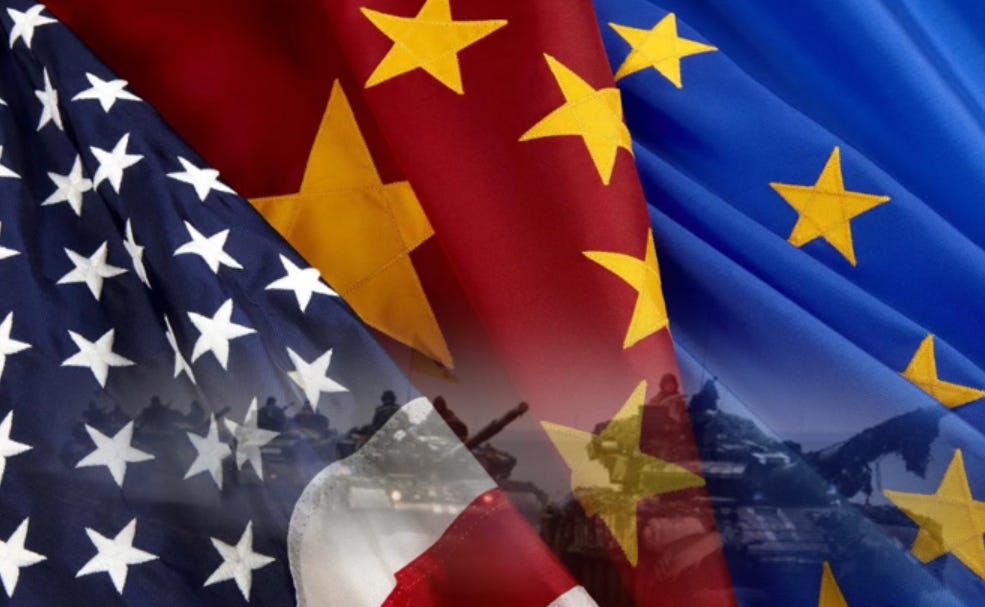


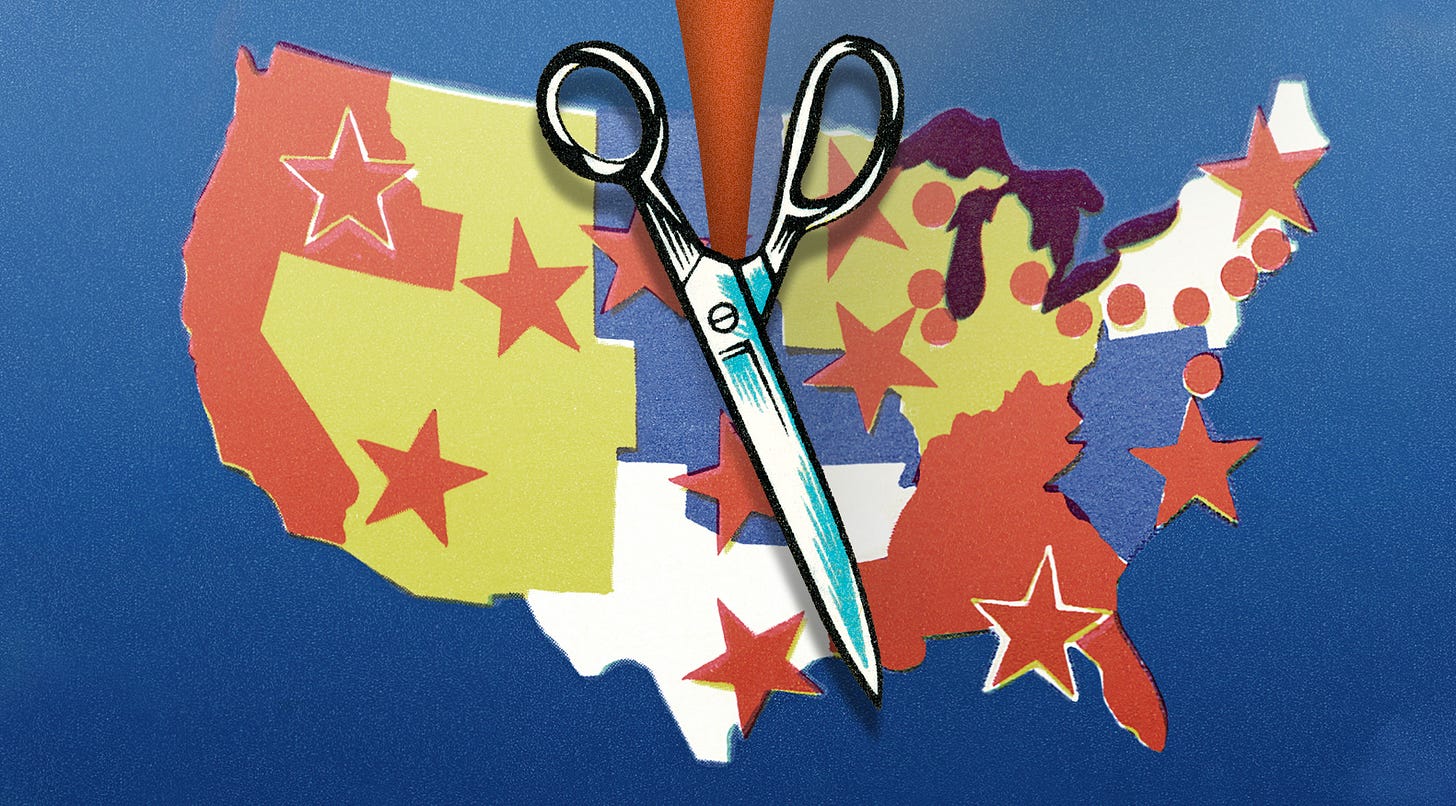
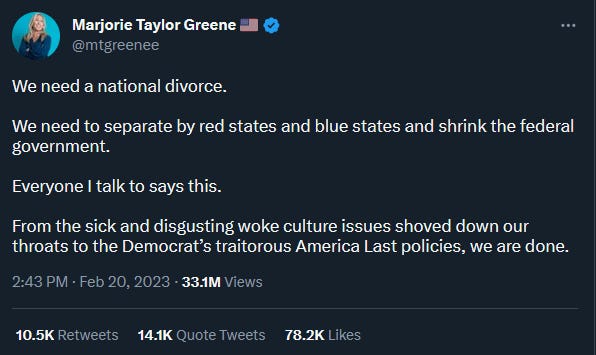
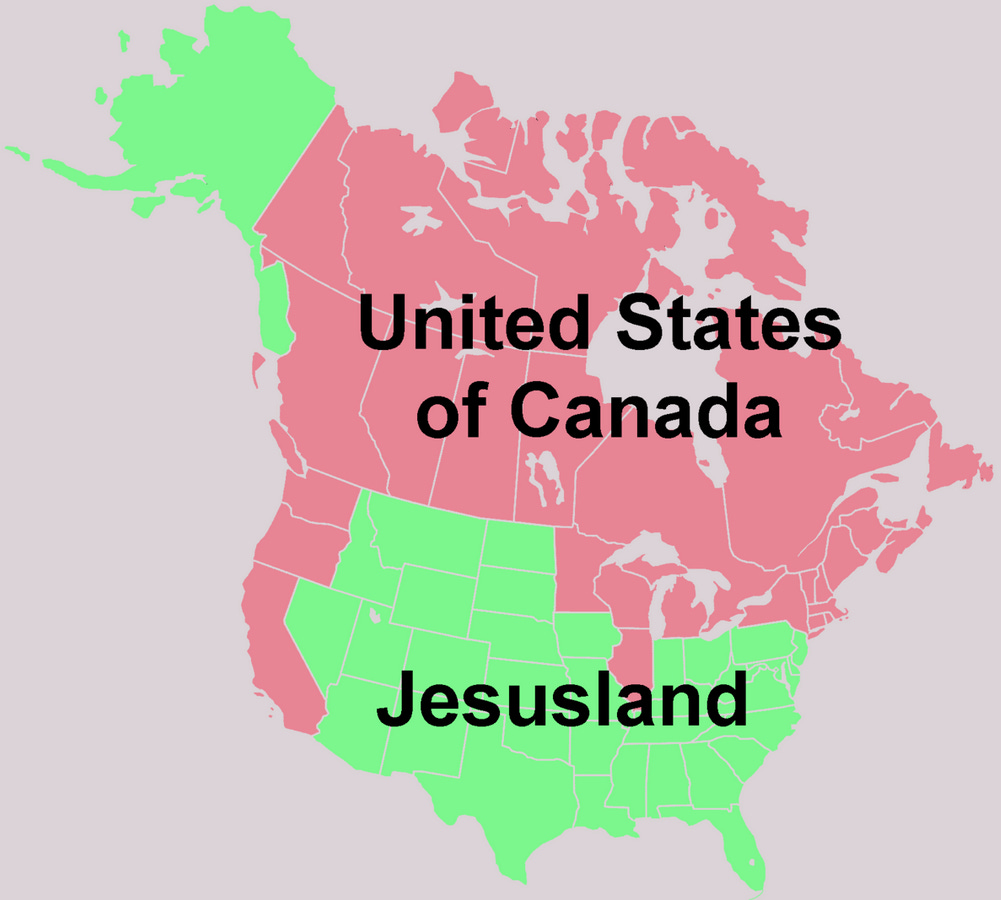
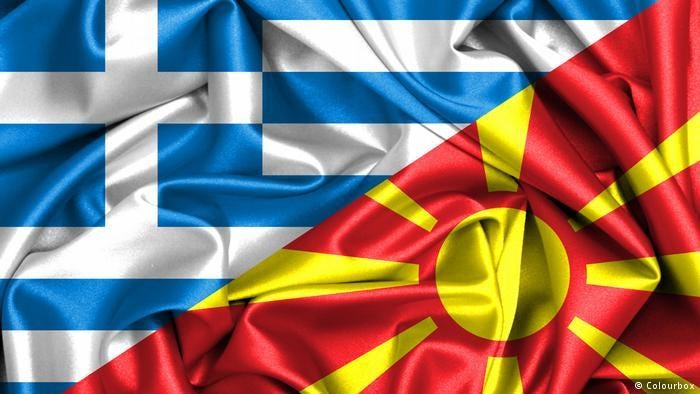
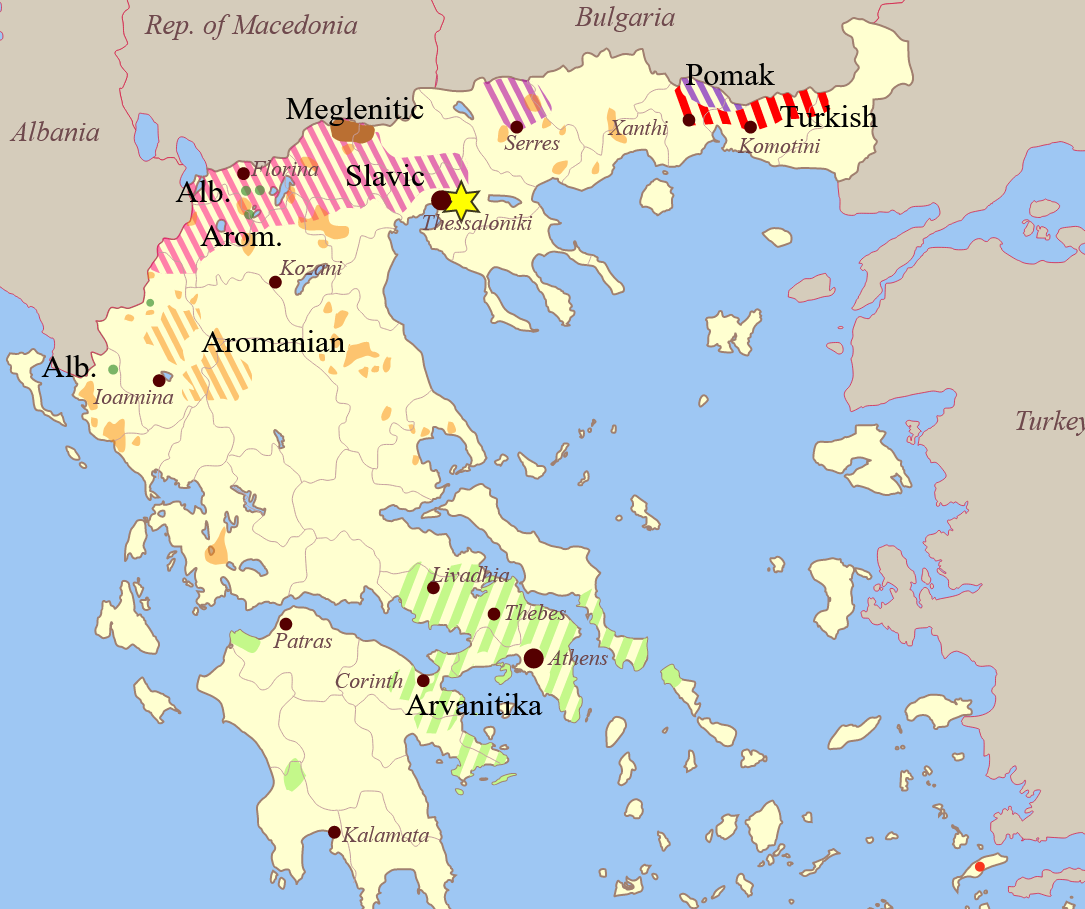

One more request:
Greek and Macedonian friends, please do not scream at me. My comments aren't meant to be an attempt at a rigid analysis. I'm just introducing the thorny subject to casuals and novices.
"Greetings dear Mr. Soldo. I am His Excellency Prince Olewayo Babafunso and I writing to enlist your help. I currently have over $100m worth of Niara that I must get out of my country before it is seized by the Nigerian government. I must remit these funds to a valid bank account in the West. All you have to do is to send me your bank details and I will wire the money to your account. In return, I will pay you a commission of 20% of the total which is $20 million. Thank you in advance for your kind assistance. I look forward to our new, mutually profitable arrangement."